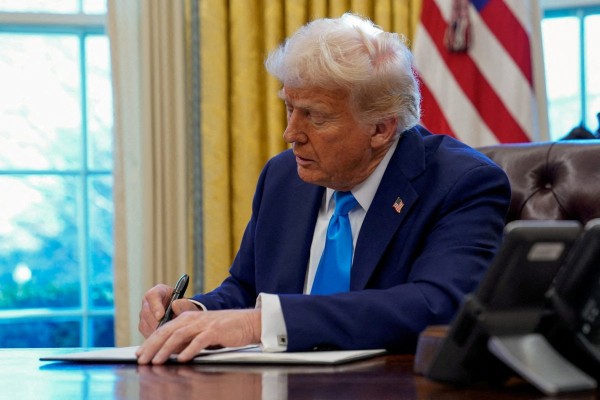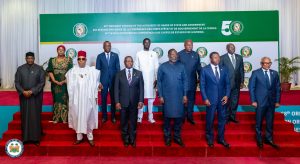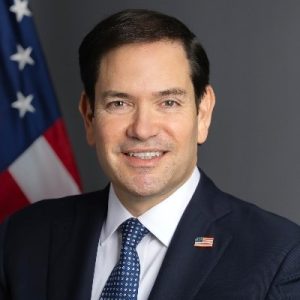Washington, D.C., 6 July 2025 U.S. President Donald Trump has invited the leaders of five African nations—Gabon, Guinea-Bissau, Liberia, Mauritania, and Senegal, to the White House on 9 July to discuss “commercial opportunities,” according to a White House official. Notably absent from the list is Nigeria, Africa’s most populous country and largest economy, sparking widespread criticism and speculation about the motives behind this exclusion. The decision, coupled with the Trump administration’s pattern of summoning African leaders in groups, raises deeper questions about the U.S.’s approach to Africa and whether it reflects a dismissive or contemptuous stance toward the continent.
The omission of Nigeria from the White House summit has drawn sharp rebuke, particularly from Nigerian political figures. Former Vice President Atiku Abubakar described the exclusion as a “scathing verdict” on President Bola Tinubu’s leadership, arguing that Nigeria’s absence signals a decline in its diplomatic relevance under the current administration. However, the reasons for Nigeria’s exclusion may extend beyond internal politics.
One plausible explanation is the Trump administration’s strategic prioritisation of smaller African nations perceived as more amenable to U.S. business interests. A White House official stated that the invited countries “offer incredible commercial opportunities” that benefit both the U.S. and its African partners. Nigeria, with its complex bureaucracy, ongoing security challenges, and history of contentious relations with the U.S., may have been deemed a less straightforward partner for Trump’s “America First” agenda, which often favours quick, tangible economic wins over long-term strategic engagement.
Another factor could be Trump’s personal approach to diplomacy, which often hinges on transactional relationships and personal rapport. Nigeria’s leadership may not have cultivated the kind of direct alignment with Trump’s priorities that other nations have. For instance, posts on X have speculated that the Trump administration is focusing on countries with untapped trade and investment potential, potentially sidelining Nigeria due to its already dominant economic presence in Africa. However, this rationale ignores Nigeria’s critical role in regional stability and its vast market of over 200 million people, raising questions about whether the exclusion is more punitive than pragmatic.
The decision to invite African leaders as a collective, rather than individually, is not unique to this summit. Historically, U.S. administrations, particularly under Trump, have frequently engaged African nations in group settings, a practice that contrasts sharply with the bilateral meetings afforded to leaders from Europe, Asia, or Latin America. This approach has long been a point of contention, with critics arguing that it diminishes the sovereignty and individual significance of African nations.
The group summons reinforces a perception that African countries are treated as a monolithic bloc, rather than as diverse nations with distinct political, economic, and cultural identities. For instance, the five invited countries span a range of governance models, from Senegal’s stable democracy to Gabon’s authoritarian regime, yet they are lumped together under the vague banner of “commercial opportunities.” This contrasts with the individual state visits granted to leaders like Japan’s Prime Minister or Brazil’s President, which signal respect and strategic priority.
The practice may stem from a combination of logistical convenience and a lack of nuanced understanding of Africa’s diversity. By grouping African leaders, the U.S. can address multiple nations in a single event, maximising efficiency while minimising the diplomatic resources devoted to a continent often seen as peripheral to U.S. interests. However, this efficiency comes at a cost: it perpetuates a narrative that African nations are less deserving of individual attention, feeding into broader criticisms of Western condescension toward the continent.
Trump’s approach to African nations has long been scrutinised for its apparent lack of respect. During his first term, his reported reference to African countries as “shithole nations” sparked global outrage, and his reinstatement of travel bans targeting seven African nations—including Chad, Eritrea, Libya, and Somalia—in 2025 has been widely condemned as discriminatory. These actions, coupled with the current summit’s structure, lend credence to accusations that the Trump administration views African nations with contempt.
The travel bans, for example, were justified by the administration as necessary to address security concerns, citing issues like visa overstays and inadequate vetting processes. However, data from 2023 shows that countries like Nigeria and Ghana had higher absolute numbers of visa overstays than the banned nations, yet faced no such restrictions. This inconsistency suggests that the bans may be less about security and more about political posturing, targeting nations with less diplomatic clout to project a hardline stance on immigration.
Moreover, Trump’s foreign policy has consistently prioritised domestic political optics over global partnerships. His administration’s decision to slash U.S. foreign aid to Africa, as part of a broader effort to curb spending deemed “wasteful,” signals a retreat from long-term engagement with the continent. The White House summit, while framed as an opportunity for mutual benefit, may be little more than a performative gesture to court African resources such as critical minerals or energy reserves while offering minimal reciprocal investment.
The treatment of African nations under Trump reflects a broader issue in U.S. foreign policy: a tendency to view Africa through a utilitarian lens, as a source of resources or a battleground for geopolitical competition, rather than as a partner deserving of equal respect. This is evident not only in the group summons but also in the lack of high-level U.S. engagement with African institutions like the African Union, which could facilitate more equitable dialogue.
The exclusion of Nigeria, in particular, underscores this dynamic. As Africa’s leading economy and a key player in regional security, Nigeria’s absence from the summit sends a signal that the U.S. is less interested in engaging with Africa’s powerhouses and more focused on smaller nations that can be more easily influenced. This approach risks alienating a continent that is increasingly asserting its agency, as evidenced by growing African partnerships with China, Russia, and the European Union.
The White House’s decision to exclude Nigeria from a summit with five African leaders is not merely a diplomatic oversight but a reflection of deeper issues in U.S.-Africa relations. The practice of summoning African leaders in groups, coupled with Trump’s history of dismissive rhetoric and policies, suggests a lack of respect for the continent’s diversity and sovereignty. While the administration frames the summit as a chance to foster “commercial opportunities,” the underlying message is clear: African nations are too often treated as secondary players on the global stage. For Nigeria and other African countries, this moment serves as a reminder of the need to assert their own diplomatic weight, lest they continue to be sidelined by a U.S. foreign policy that prioritises convenience and control over partnership and mutual respect.






